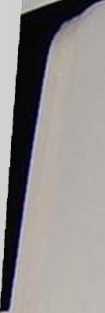DSC"83

50 Odmiany myślenia o edukacji
61 J- Tischner. Świat ludzkiej nadziei. Wybór szkiców filozoficznych 1966 1975, Karków 1992, rozdz. II 7 problematyki wychowania chrześcijańskiego. ay D. Bell. Powrót .... op. Cii.
** H.-G. Gadamcr, Prawda i metoda, op. cit., część druga. K. Rosner, Hermeneutyka jako krytyka kultury. Heidegger, Gadamcr, Ricoeur, Warszawa 1991.
6i H.-G. Gadamcr. Prawda i metoda, op. cit., s. 329.
** Tamże, s. 330.
•7 Tamże. s. 331.
M Tamże, s. 332.
09 T. Szkudlarck, Wiedza i wolność w pedagogice amerykańskiego postmodernizmu, Kraków 1993.
70 Por. K. Wikoszcwska. O pojęciu „postmodernizmu" uwag kilka, w: Oblicza post moderny. Teoria i praktyka uczestnictwa h kulturze współczesnej, Red. A. Zcid-łcr-Janiszcwska, Warszawa 1992.
71 Nasi rój tej dyskusji oddają trzy teksty przedstawione w „Kwartalniku Pedagogicznym" No 1, 1993: Z. Mclosika, Postmodernizm i edukacja; T. Szkudlarka. Post-socjalistyczna edukacja a filozofa postmodernizmu oraz J. Kargula, Czy szkoła ma ulegać postmodernizmowi?
71 R. G. Paulston, Pedagogika porównawcza jako pole nakreślania konceptualnych map teorii i paradygmatów, w: Spory o edukację. Dylematy i kontrowersje we współczesnych pedagogiach, zbiór pod red. Z. Kwiecińskiego. L. Witkowskiego, Warszawa 1993.
7J Por. i Rutkowiak. Wielość języków pedagogiki a problem jej tożsamości, w: Ewolucja tożsamości pedagogiki, red. naukowa H Kwiatkowska, Warszawa 1994.
'* R. Mcighan, Socjologia edukacji, red. naukowy Z. Kwieciński. Toruń 1993, rozdz. 14.
75 Tamże, s. 200.
76 Tamże, s. 201-202.
77 H. A. Giroux. Rcthinking the Language ofSchooling, w: Teachers as Intellectuuls. Toward a Critical Pcdagogy of Learning, New York, Wcstport, Connecticut, London, 1988. s. 5.
Z. Mclosik, Współczesna amerykańska socjologia edukacji: kilka uwag o statusie teorii, „Forum Oświatowe" No 1, 1994.
70 Tamże, s. 45.
80 Tamże, s. 46.
81 Tamże, s. 47.
87 Tamże, s. 51.
*J J Rutkowiak, O dialogu edukacyjnym Rusztowanie kategorialne, w Pytanie dialog wychowanie, praca zbiorowa pod red. tejże. Warszawa 1992

'The Pulsating Categories' Markers of the Map to Thinking
about Education
Tho prosont toxi is orgamsod around the metaphor referring to pedagogue — the wandoror and tho map ho usos on his cogmtivo voyage.
A pedagogue taking his direction from the ideas of a single pedagogy does not nced any map. sinco ho is facing a concrete route spreading ahead of him which he follows apperontly lotting himself be guided and led by it.
A pedagoguo facing two paths, with the name actually givcn to iwo theories of pedagogy. for mstanco tho ‘quantitativo pedagogy' and the opposmg 'qualitat»ve pedagogy’. is in a moro difficult situation. However. his problem actually comes down to arrivmg at a decision, and not to building his view of the entire horizon of tho issues around him. Hence. no map is needed to him either.
The oxperience of our contemporaries. who remain usatisfied with any 'great narration' that might be treated as a marker pointing to any generał direction. bears fruit in the form of a great varioty of ideas and implementations. In order to garn some direction among them. the contemporary pedagogue — the wanderer needs a map; a map to variations of thinking about education.
It is plausiblo to construct such a map along disciplined lines. providing justiłication for its co-ordmates. Howovor. tho complox and dynamie roality cannot bo confmod in tho procision of schemata Bearing this in mind it is not impossible to create maps based on empirical grounds. These. in turn. would ref leci the anempts to encompass experionco in its ontiroty. However, the picture would only gcvo outlmes of the oxpononco rosulling in a draft picture. sińce tho volalility and tho rato of changes taking place in modern limes cannot be reconcilod with building stablo constructions Tho idea presontod in this toxt refors to creatmg such a silhouetto map basing on fhe following 'pulsating caiogories* intelloctuality of traditional pedagogy. practice of progrossivo pedagogy. practiliiy of pedagogues of New Education. onentation towards fho objoct of scieniific and techmcal pedagogy. onentation towards the suhjoci of humanistic pedagogy. the donounemg strongth of cntical pedagogy. tho guosfioning naturę of hormenoutic pedagogy. tho sacral charactor ot pedagogy ot faith, fho snnctionod multiphcity of postmodernist pedagogy
Tho crucinl issuo rolntod to thinking as roflocted m tho motaphor ot the map is tho guostion of nccopfmg tho potontial simultaneous coonstonco ot vanous varioties ot thinking about education. all ot them ot oqual status, functtonmg $>do by sido. and maintmning common dialoguo
Wyszukiwarka
Podobne podstrony:
R 24 mysienia o edukacji 02 J. Tischner, Świat ludzkiej nadziei. Wybór szkiców filozoficznych 1966 1
R 24 mysienia o edukacji 62 J. Tischner, Świat ludzkiej nadziei. Wybór szkiców fil
DSC 65 14 Odmiany myślenia o edukacji Przyjmując tę drugą koncepcję, opieram ją na idei ..pulsującyc
DSC 67 18 Odmiany myślenia o edukacji Powiedzmy wstępnie, że jakościowe podejście do problematyki ed
DSC 72 28 Odmiany myślenia o edukacji i ograniczać sferę bezwiednych zachowań34. Te aspekty przemawi
DSC 73 30 Odmiany myślenia o edukacji tym o intclcktualizm akademicki, hermetyczny, lecz. o ogólną u
DSC 80 44 Odmiany myślenia o edukacji przckaz/intcrpretacja (Bames i Shcmilt. 1974), szkoły otwartc/
DSC 68 20 Odmiany myślenia o edukacji Do tego zestawu dołączyła później E. Jacob jeszcze jedną trady
DSC 79 r 42 Odmiany myślenia o edukacji Natomiast zdaniem innych, edukacja powinna opamiętać się i w
więcej podobnych podstron